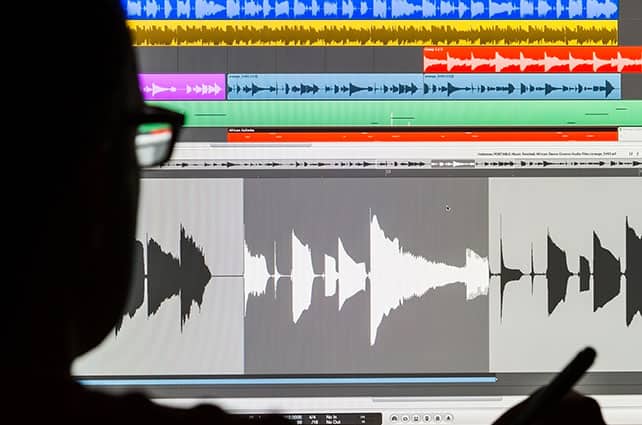Uncovering the Truth: The Intriguing World of Audio Forensics
Audio forensics is a fascinating field that involves the scientific analysis and examination of audio recordings for use in investigations, court cases, and other legal proceedings. This specialized form of forensic science plays a crucial role in uncovering the truth behind audio recordings, whether it involves clarifying distorted sounds, identifying voices, or authenticating recordings. In this article, we will explore the world of audio forensics, its techniques, and its importance in modern investigative and legal practices.

The Basics of Audio Forensics
What is Audio Forensics?
- Audio forensics is the scientific process of analyzing and evaluating audio recordings using specialized equipment and techniques.
- It involves enhancing, clarifying, and authenticating audio evidence to assist in investigations and legal proceedings.
Applications of Audio Forensics
- Audio forensics is used in criminal investigations, civil litigation, law enforcement operations, and intelligence gathering.
- It can help identify suspects, detect tampering or editing of recordings, and provide crucial evidence in court cases.
Techniques Used in Audio Forensics
Audio Enhancement
- Audio enhancement involves improving the quality of audio recordings by reducing background noise, enhancing speech intelligibility, and clarifying indistinct sounds.
- Techniques such as filtering, equalization, and noise reduction are used to enhance the overall clarity of audio recordings.
Voice Identification
- Voice identification is the process of determining the identity of a speaker based on their unique vocal characteristics.
- Forensic voice analysis compares the spectrogram and acoustic features of a suspect's voice with those of a recorded voice to establish a match.
Authentication of Audio Recordings
- Audio authentication involves verifying the integrity and originality of audio recordings to ensure their admissibility as evidence in court.
- Techniques such as examining metadata, analyzing acoustic properties, and detecting signs of editing or tampering are used to authenticate audio recordings.
The Importance of Audio Forensics in Investigations
Enhancing Evidence
- Audio forensics can help enhance the quality of audio evidence, making it clearer and more intelligible for investigators and legal professionals.
- Enhanced audio recordings can reveal crucial details, such as whispered conversations, background noises, or hidden threats, that may have been missed in the original recording.
Providing Key Insights
- Audio forensics can provide key insights into a case by uncovering hidden information, identifying suspects, or revealing inconsistencies in testimonies.
- By analyzing audio recordings forensically, investigators can gain a deeper understanding of events and conversations that took place during a specific time frame.
Challenges and Limitations of Audio Forensics
Poor Audio Quality
- One of the main challenges in audio forensics is dealing with poor audio quality, which can result from background noise, low recording levels, or technical issues.
- Improving the clarity of audio recordings with low quality requires advanced techniques and specialized equipment, which may not always be successful.
Deepfake Audio
- Another challenge is the rise of deepfake audio technology, which can create highly realistic fake audio recordings of individuals saying things they never said.
- Detecting deepfake audio requires advanced forensic analysis and sophisticated algorithms to distinguish between authentic and manipulated recordings.
Conclusion
Audio forensics is a vital tool in modern investigative and legal practices, offering valuable insights into audio recordings that can help uncover the truth behind complex cases. By employing advanced techniques and specialized equipment, audio forensic experts play a crucial role in enhancing evidence, identifying suspects, and providing key insights that can make a significant difference in the outcome of investigations and court proceedings.